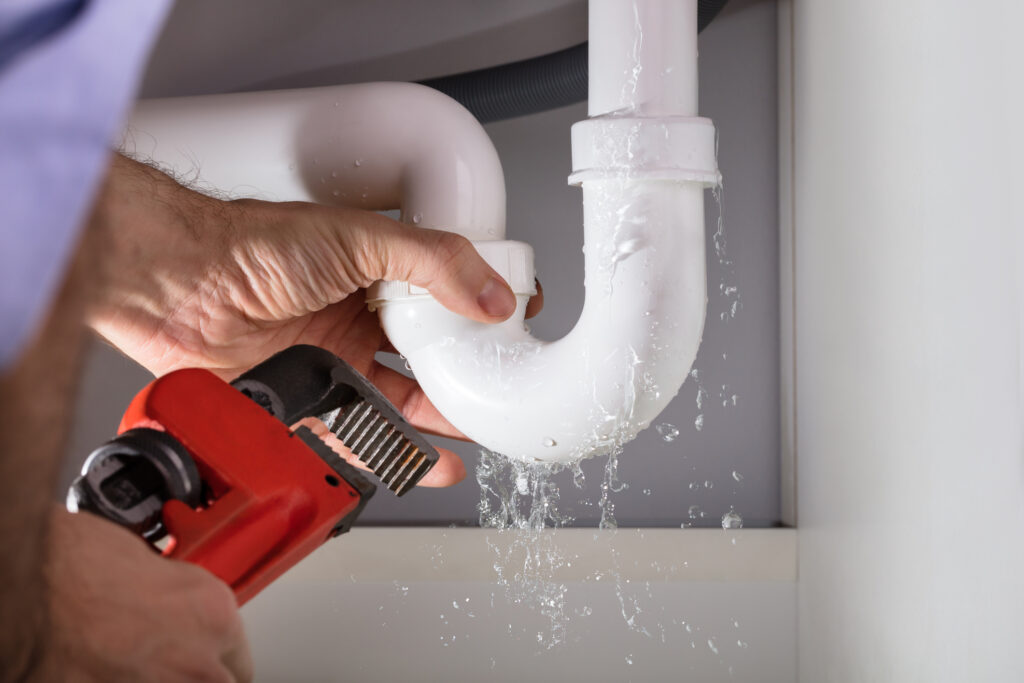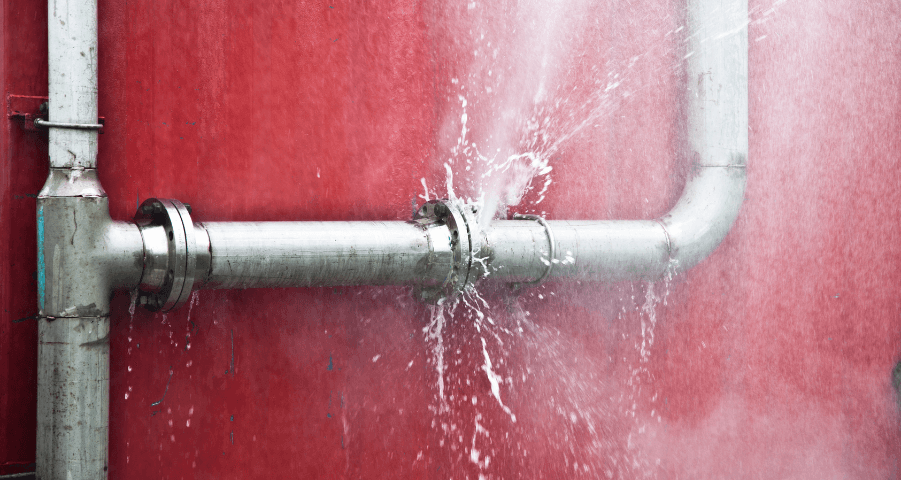Critical Fixes: How to Until A Plumber Arrives
Critical Fixes: How to Until A Plumber Arrives
Blog Article
We have stumbled upon this great article about Expert Tips for Managing a Plumbing Emergency Until Help Arrives listed below on the web and reckoned it made good sense to talk about it with you over here.

Pipes emergencies can strike any time, creating stress and prospective damages to your home. Whether it's a burst pipe, a clogged up drainpipe, or a leaking faucet, recognizing how to manage the circumstance till a professional plumbing technician gets here can conserve you from additional difficulties. This short article offers necessary emergency plumbing ideas to aid you mitigate damage and gain back control throughout a pipes crisis.
Turn Off the Supply Of Water
The primary step in any kind of pipes emergency is to turn off the water. For local concerns, such as a leaking faucet or bathroom, shut off the shutoff near the component. When it comes to a major leak or burst pipe, find your home's primary water shut-off shutoff and transform it off quickly. Knowing the area of these shutoffs ahead of time can conserve useful time throughout an emergency.
Address Little Leaks with Temporary Fixes
Tiny leaks can rapidly end up being considerable issues if left untreated. Utilize these temporary fixes until professional help arrives:
While these repairs aren't permanent, they can aid reduce water loss and damages.
Unclog Drains Safely
A stopped up drain can be an irritating and untidy concern. Right here's how to tackle it:
If these techniques don't function, prevent making use of too much force, as it may worsen the blockage.
Take Care Of Overflowing Toilets
An overruning bathroom can cause immediate disorder. Below's what you ought to do:
Shut down Your Water Heater
In particular emergency situations, such as a burst pipeline, it's a good idea to shut off your hot water heater. This prevents getting too hot or damage to the device when water stops streaming. Switch off the power supply to the water heater (electrical or gas) and let it cool down to stay clear of prospective hazards.
Briefly Quit a Burst Pipeline
A ruptured pipe can lead to substantial water damage in minutes. To minimize the problem:
Call a specialist plumbing technician instantly to attend to the issue permanently.
Manage Frozen Pipeline Carefully
In cooler environments, frozen pipelines are a typical emergency. If you presume a frozen pipe:
Prevent More Damages
Taking quick activity to lessen damage can save you money and time over time. Below's exactly how:
. Have an Emergency Plumbing Package
Prepare a basic plumbing emergency package to deal with small concerns efficiently. Your package should include:
Having these tools available can make a substantial difference in your capability to handle emergency situations.
Know When to Call a Professional.
While quick fixes can assist momentarily, certain plumbing problems call for immediate professional interest. Call a plumber if:.
Without delay contacting an expert makes certain the issue is fixed appropriately and prevents additional issues.
Verdict.
Plumbing emergencies can be overwhelming, however with the ideal understanding and devices, you can handle the situation efficiently till help shows up. By shutting off the water system, attending to little leakages, and utilizing momentary repairs, you can lessen damages and keep your home safe. Keep in mind, these suggestions are short-term services; always speak with a licensed plumbing professional to take care of the origin of the issue. Preparation and quick thinking are your ideal allies in any kind of pipes emergency situation.
8 Helpful Tips for Managing Plumbing Emergencies at Home
If your plumbing system hasn’t failed once, wait for it because almost everyone has a story to tell. Sometimes, it could be simple emergencies such as a leaking pipe, a blocked cistern, or even a big burst pipe. In situations like this, you need to have some handy tips to save you some money and from possible damages.
Take care of minor issues early.
Sometimes, you could have avoided an emergency by taking proactive measures while it was still early. Some major plumbing emergencies can be a result of an ignored minor issue. We recommend that you have items like plumbing tapes and other related items. A plumbing tape can allow you to manage minor leaks before the plumber arrives.
Cut off the water supply.
This tip is essential in almost any type of leakage problem. For problems like minor leakages in the toilet or kitchen, turn off the supply that takes water to the affected pipes. If the leakage is a major pipe, you must shut off the supply valve to the entire building. This will help you avoid flooding your home and neighbors if you share a flat.
Know your plumbing system
Folks typically move into a new apartment without understanding the water supply around the building. This can prove disastrous if a water emergency arises and the plumber is far away. The previous tip will prove useless if you don’t practice this one. More importantly, know where your water shut-off valve is located – you’ll need that knowledge to prevent potential home floods.
Have some common handy tools
There are lots of plumbing emergencies that you can handle without hiring a plumber. That’s why you must keep some tools available always. Some tools that you can use to fix simple plumbing emergencies easily include plumbing tapes, screwdrivers, thread seal tapes, plungers, pliers, tape measures, and rubber gloves.
Insulate your pipes from cold
You’ll save yourself from many plumbing expenses if you protect your water pipes from the cold. This is because of the harmful effects that cold weather can have on your pipes. During winter, your pipes can burst from being overly expected to freezing temperatures. So, make sure insulators are there to keep the pipes working correctly.
Avoid practices that will clog your toilet.
Many people indulge in practices that can damage the plumbing system of the entire building. One of these is when they use their toilet to dispose-off garbage. They flush all kinds of things, such as paper towels, bandages, hairs, female sanitary products, etc., down the toilet. This will block your toilet in the long run, incurring unnecessary expenditures. Dump such waste in the trash instead.
Check your dials regularly.
Sometimes, there could be leakages in your home without noticing them in time. So, constantly monitor your water meter dial. If the dial is reading when there is nobody using water, this is an indicator that there is leaking. Check for leaks immediately. Call a plumber as soon as possible if you can’t find any.
https://www.constructionplacements.com/8-helpful-tips-for-managing-plumbing-emergencies-at-home/

Do you like reading up on Expert Tips for Managing a Plumbing Emergency Until Help Arrives? Place feedback below. We will be delighted to see your views about this blog entry. Hoping to see you back again later on. Sharing is nice. Who knows, you will be helping someone out. Thanks a lot for going through it.
Top Article Report this page